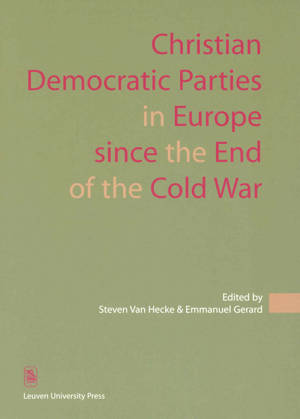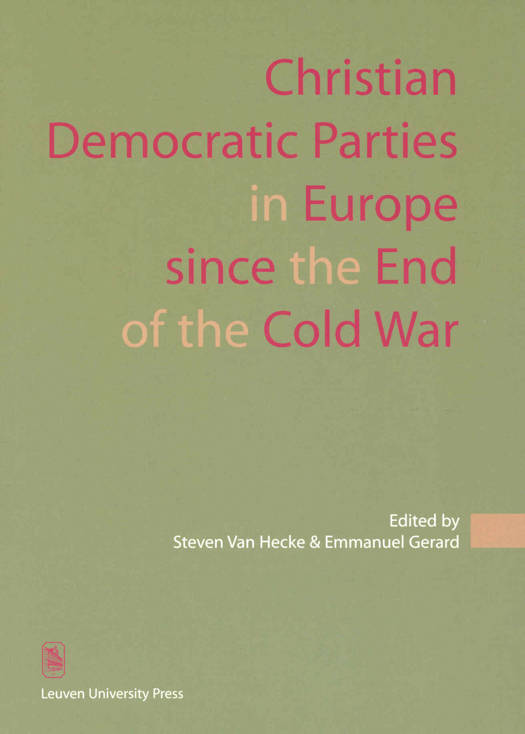
- Retrait gratuit dans votre magasin Club
- 7.000.000 titres dans notre catalogue
- Payer en toute sécurité
- Toujours un magasin près de chez vous
- Retrait gratuit dans votre magasin Club
- 7.000.0000 titres dans notre catalogue
- Payer en toute sécurité
- Toujours un magasin près de chez vous
Christian Democratic Parties in Europe Since the End of the Cold War
Steven Van Hecke, Emmanuel GerardDescription
The period since the end of the Cold War has been characterised by an acceleration in the European integration process, a changing pattern of political ideologies and the emergence of new political parties and issues. This book assesses the impact of these phenomena on Christian Democratic parties in the current and future member states of the European Union and highlights some of the particularities and universalities of European Christian Democracy from a comparative and transnational perspective. Political scientists and historians from various universities examine the way in which Christian Democratic parties have responded to these challenges (for instance by a rapprochement with non-Christian Democrats) and explain how those responses have resulted in failure in some cases and success in others.
Spécifications
Parties prenantes
- Auteur(s) :
- Editeur:
Contenu
- Nombre de pages :
- 344
- Langue:
- Anglais
- Collection :
Caractéristiques
- EAN:
- 9789058673770
- Date de parution :
- 15-02-08
- Format:
- Livre broché
- Format numérique:
- Trade paperback (VS)
- Dimensions :
- 173 mm x 231 mm
- Poids :
- 657 g

Les avis
Nous publions uniquement les avis qui respectent les conditions requises. Consultez nos conditions pour les avis.






